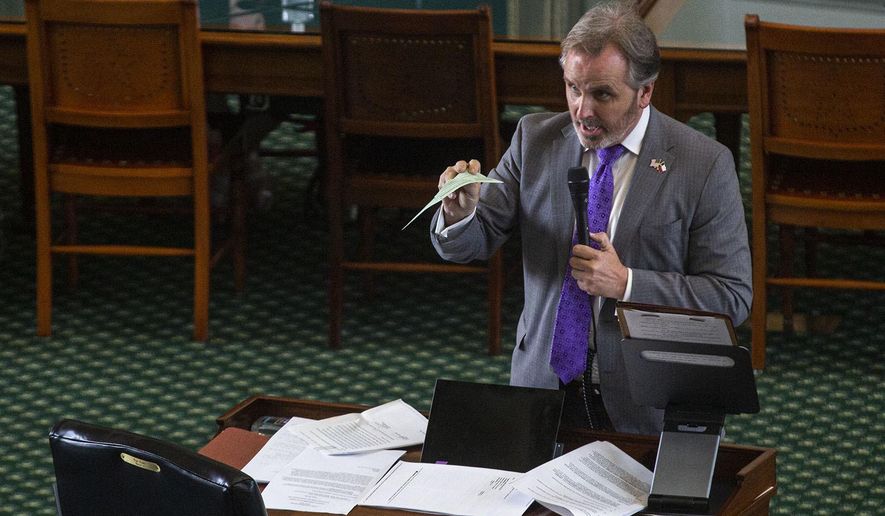Texas Republicans have demanded information from four major Wall Street firms about how the institutions handle the state’s public pensions, part of a growing trend of red states targeting financial companies that make decisions based on climate change and other social issues.
The Senate Committee of State Affairs is seeking information from investment managers BlackRock, State Street Global Advisors and The Vanguard Group, as well as investment advisory group Institutional Shareholder Services.
The panel wants to know how the companies’ use of so-called environmental, social and governance (ESG) policies affect their financial decisions.
Conservative elected leaders across the country have increasingly pushed back against institutions that make investment choices based on ESG factors like the environment and social issues to corporate transparency and diversity measures, rather than on maximizing their customers’ profits.
Chief among the concerns in the state is whether these firms involved in the states’ retirement funds are making financial decisions based on ESG principles.
State Sen. Bryan Hughes, the panel’s Republican chair, made the written requests earlier this month. They were first made public Tuesday.
SEE ALSO: GOP lawmakers prepare to probe ‘appalling’ new FBI whistleblower allegations
“Financial firms are playing politics with other people’s money. When they’re using Texans’ money to play politics, and in particular to push a left-wing political agenda that’s bad for the people of Texas, we’re going to get involved,” Mr. Hughes said in an interview.
“If these firms are investing to maximize shareholder wealth, then they should be happy to show us what they’re doing,” he said.
State Street declined to comment. None of the other three firms responded to requests for comment.
However, Mr. Hughes said all four have privately promised to comply with his committee’s request by a Sept. 9 deadline. If they fail to, he said a subpoena is on standby to force appearances for public testimony.
Among the information being sought is correspondence with climate activist groups and their investment decisions on the fossil-fuel industry.
BlackRock, considered a leader in the ESG movement and one of the world’s largest asset managers with roughly $10 trillion under its control, has found itself in the crosshairs of Republicans across the country.
A conservative group that combats “woke capitalism” launched a multimillion-dollar campaign last week against BlackRock and CEO Larry Fink for having “weaponized” retirement funds by using its “clout to push a radical agenda.”
The probe by Mr. Hughes comes in the wake of a state law enacted last year that allows the government to cease business with companies it deems to be boycotting fossil fuels.
But the state has faced hurdles implementing the law because of its loopholes, broad language and the uncharted territory of determining if and by how much companies are shying away from the industry.
The anti-ESG trend is nationwide and particularly fierce in places like Texas, where the fossil-fuel industry accounts for a major portion of the economy.
The natural gas-rich state of West Virginia used a similar law to bar major firms — including BlackRock — last month from doing business with the state.
Anti-ESG legislation is in the works or has already passed in at least 15 other states. Governors in Kentucky, Tennessee and Oklahoma recently signed such bills into law.
ESG advocates argue that the cost of not factoring in climate-related risks could end up costing investors far more in the long run. They’ve also noted that severing government ties with large banks that engage in ESG could result in taxpayers footing the bill for higher interest rates from other borrowers.
A recent study from the University of Pennsylvania’s Wharton business school and the Federal Reserve Board of Governors found that Texas will pay up to an extra $532 million in interest in less than a year on $32 billion worth of loans because its anti-ESG law created an exodus of large bond underwriters.
• Ramsey Touchberry can be reached at rtouchberry@washingtontimes.com.




Please read our comment policy before commenting.